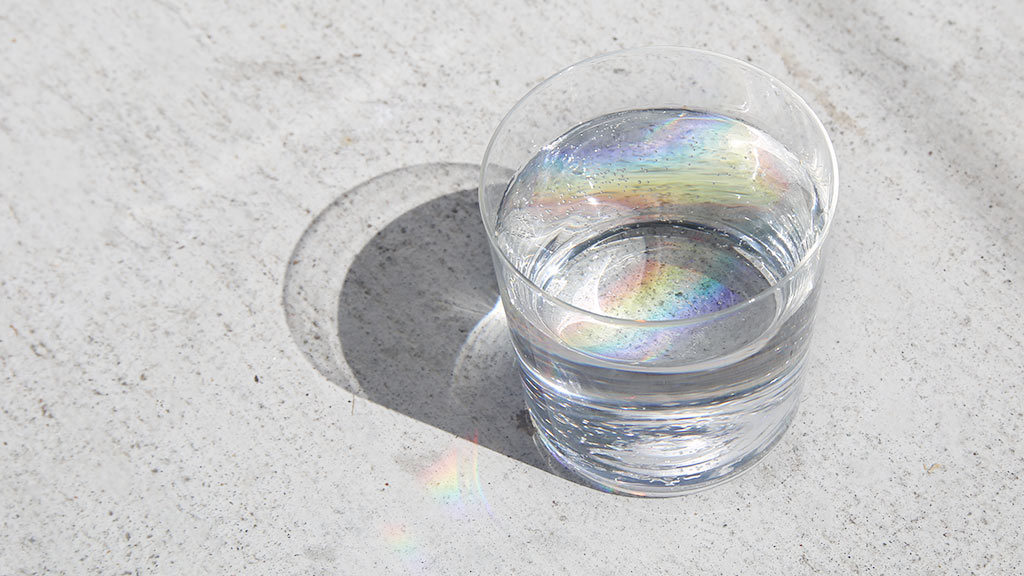Nourish
IS ALGAE ACTUALLY GOOD FOR YOU?
Lately it seems like everywhere we turn, we’re hearing about the incredible benefits of algae (boosts your immune system! Amazing source of protein! Full of antioxidants!). And while we love to learn about ways to keep our bodies healthy and strong, we don’t love to jump on board with a wellness trend without doing our own research first.
So we reached out to nutritionist and naturopathic doctor Jen Curtiss for her take on algae—and we’re so glad we did.
“Most algae comes from very toxic sources—warm lakes full of pesticides and heavy metals,” Dr. Curtiss explains. Algae in its purest state does have benefits, she explains. “Blue-green algae, chlorella, and spirulina all bind heavy metals and may help rid them from the body. However, they may also accumulate levels of heavy metals and be a toxic source when ingested.”
In other words, you might get those promised benefits from algae, but at the same time you could also get a decidedly unhealthy dose of heavy metals.
On the rare occasions Dr. Curtiss does prescribe algae, it’s in the form of chlorella for patients who are undergoing a heavy-metal detox, or who are living in known toxic environments, such as Beijing, China. The key is making sure the algae comes from a pristine, non-toxic source that uses good farming practices. That way, the patients get the benefit of algae’s ability to bind and rid the body of heavy metals, without the dangerous toxins.
“In the dangerous world of supplements, it’s often difficult to find high-quality, safe products that aren’t contaminated,” Dr. Curtiss explains. “As a result, many environmentally conscious supplement companies are paying for the contaminant and content testing of their products for safe regulation, and are selling their supplements through physicians or natural pharmacies only. This creates a built-in level of safety that allows physicians to monitor and guide their patients to proper use of a supplement and to avoid causing harm.”
After extensive research, including interviewing the owner of the company about the source of the algae, Dr. Curtiss chose BioImmersion as the algae she prescribes—again on rare occasions—to her patients. (You need a physician’s referral to get this.)
“The big take-home message is that blue-green algae, chlorella, and spirulina all have potential health benefits, but it is very difficult to fine clean, toxin-free sources of them,” Dr. Curtiss says. “And for that reason I generally don’t recommend them.”
Lately it seems like everywhere we turn, we’re hearing about the incredible benefits of algae (boosts your immune system! Amazing source of protein! Full of antioxidants!). And while we love to learn about ways to keep our bodies healthy and strong, we don’t love to jump on board with a wellness trend without doing our own research first.
So we reached out to nutritionist and naturopathic doctor Jen Curtiss for her take on algae—and we’re so glad we did.
“Most algae comes from very toxic sources—warm lakes full of pesticides and heavy metals,” Dr. Curtiss explains. Algae in its purest state does have benefits, she explains. “Blue-green algae, chlorella, and spirulina all bind heavy metals and may help rid them from the body. However, they may also accumulate levels of heavy metals and be a toxic source when ingested.”
In other words, you might get those promised benefits from algae, but at the same time you could also get a decidedly unhealthy dose of heavy metals.
On the rare occasions Dr. Curtiss does prescribe algae, it’s in the form of chlorella for patients who are undergoing a heavy-metal detox, or who are living in known toxic environments, such as Beijing, China. The key is making sure the algae comes from a pristine, non-toxic source that uses good farming practices. That way, the patients get the benefit of algae’s ability to bind and rid the body of heavy metals, without the dangerous toxins.
“In the dangerous world of supplements, it’s often difficult to find high-quality, safe products that aren’t contaminated,” Dr. Curtiss explains. “As a result, many environmentally conscious supplement companies are paying for the contaminant and content testing of their products for safe regulation, and are selling their supplements through physicians or natural pharmacies only. This creates a built-in level of safety that allows physicians to monitor and guide their patients to proper use of a supplement and to avoid causing harm.”
After extensive research, including interviewing the owner of the company about the source of the algae, Dr. Curtiss chose BioImmersion as the algae she prescribes—again on rare occasions—to her patients. (You need a physician’s referral to get this.)
“The big take-home message is that blue-green algae, chlorella, and spirulina all have potential health benefits, but it is very difficult to fine clean, toxin-free sources of them,” Dr. Curtiss says. “And for that reason I generally don’t recommend them.”










0 people have left a comment. Join the conversation!
View Comments